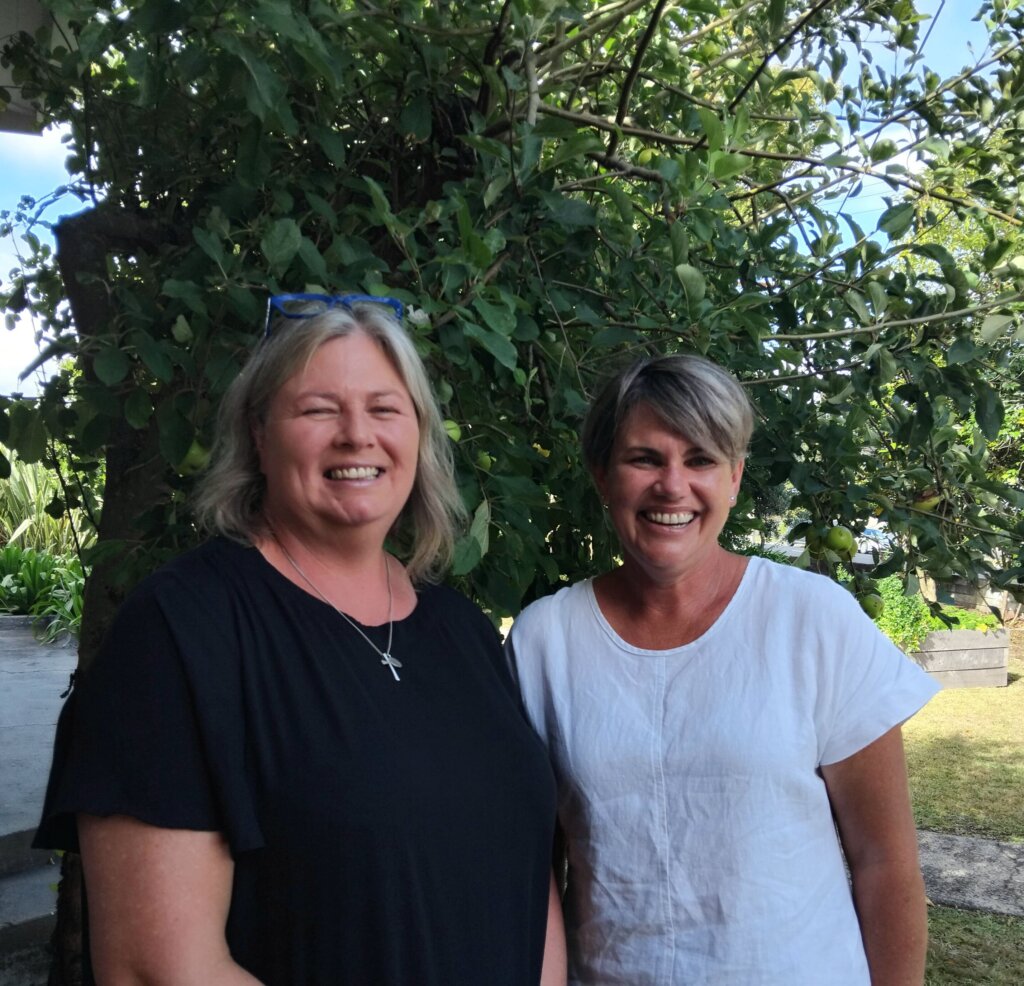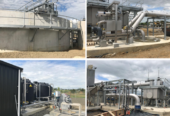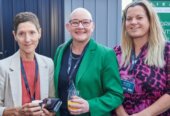Recognising and responding to people experiencing a mental health crisis or challenge is a skill every New Zealander should have, says Pirongia mental health expert Sarah Keelty.
She is team lead at Manaaki Raatonga aa Iwi (Mental Health and Addiction Services) in Hamilton, part of Health New Zealand Te Whatu Ora Waikato.

Sarah Keelty, left, and Stacey Kaye
Stacey Kaye is an occupational therapist at the service, and both are passionate advocates of the Mental Health First Aid Aotearoa (MHFA) programme.
“I feel that it is not only life changing, but it is lifesaving,” says Keelty.
The evidenced-based education programme equips people with the practical skills, knowledge, and confidence to support someone experiencing a mental health challenge or crisis.
“Mental health is such an invisible load. A mental health emergency should be viewed the same as a medical emergency, like breaking a leg or having a heart condition,” said Keelty.
The programme was developed in Australia more than 20 years ago and is now taught in 29 countries. In New Zealand, the national licence for the programme is held by Te Pou, which adapted edition four of the programme in 2020.
Keelty and Kaye were among the first cohort of instructors trained in the updated edition in New Zealand two years ago.
Together, they have trained more than 300 people, and the training continues to be in demand across the region.
“The room is always full,” said Keelty, who jokes that they are “the Sarah and Stacey show”.
A mental health emergency should be viewed the same as a medical emergency, like breaking a leg… – Sarah Keelty
Their friendship, sense of humour and camaraderie help them to teach complex and sensitive topics including dealing with depression, anxiety, psychosis, problematic substance use, with a crisis focus on suicidal thoughts and behaviours, and non-suicidal self-injury.
While most of the attendees are health professionals from Health NZ Waikato, they have also trained many people in the community including those from non-governmental organisations and government entities with ties to Health NZ.
Among them are allied health professionals, qualified nurses and midwives, frontline hospital staff, and marae-based community support workers. Training has taken Keelty and Kaye everywhere from Thames to Raglan, Ngāruawāhia and Te Kūiti.
They believe that MHFA training is critical – not only for those working in the health sector, but for all New Zealanders.
“The lack of knowledge out there in the community is overwhelming and eye-watering. I am really surprised that, in 2024, still how much is not known about mental health,” said Keelty.
“What I love about the programme is it’s taken mental health education out of a clinical setting and made it relevant to the community – whether a sports club or community setting.
“The biggest thing I take away from Mental Health First Aid, is the confidence people get after attending those two days of training. Because they often have that gut feeling that something is not right with somebody, but they don’t know what to do about it.”








